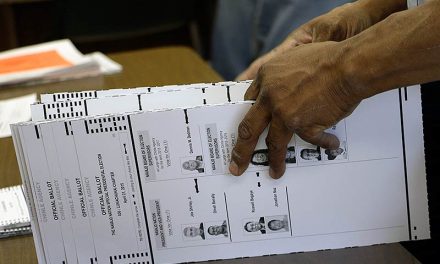
Guest Column: New Year’s resolution: Repeal the Diné Marriage Act
By Kyle Ranieri
As we ring in 2018 and celebrate the beginning of a new year, the festivities also present an opportunity for us to reflect on the past and imagine where we’d like to go. Many of my resolutions for this year are the same as those of past years, ranging from eating healthier to calling my mother more often.
But this year, in addition to my annual aspirations I have a different, more meaningful resolution: to see the repeal of the Diné Marriage Act.
In 2005 the Navajo Nation Council passed the Diné Marriage Act prohibiting same-sex marriages in the Navajo Nation as a tribal equivalent to the 1996 Clinton Defense of Marriage Act, which was later deemed unconstitutional by the U.S. Supreme Court in 2013.
President Joe Shirley Jr. vetoed the act at the time, and President Ben Shelly was also against the law, yet it still remains on the books despite same-sex marriage now being legal throughout the United States for almost three years.
The law was supposedly meant to support “strong family values” and to “not discriminate,” according to its sponsors. But in reality it further isolates members of our community who are in great need of our support.
The law is at once a fundamental violation of Navajo civil rights and human rights. Moreover, the law goes against our traditional teachings and lifeways by perpetuating a difficult colonial past and preventing us from fully embracing our traditions as a proud and enduring people.
Our Creation Story tells us that nádleeh people — those with both feminine and masculine characteristics — have been with us since the very beginning. They were respected members of our community as the first children of First Man and First Woman, and as the knowledge-bearers of pottery and basket weaving. They were crucial to the survival and origin of the Diné since the early times.
Nádleeh were always recognized members of our community, up until the arrival of the U.S. military, when we were forced on the Long Walk and our way of life as we had always known it would never be the same.
We all know the violent process of eliminating our traditions continued beyond Bosque Redondo, with harsh Western laws and a boarding school system created to erase us, our history, and sense of self.
Although the Diné have faced a difficult history that we continue to struggle with today, there has been immense progress made in revitalizing our language, traditions, and beliefs. In the tribal courts, the use of Navajo common law has become commonplace. Contractual disputes are settled through consideration of k’e, and hozho is used to determine legal standing.
Both of these traditional principles emphasize the importance of good relations and the value of all members in our community as we continue to build a stronger Navajo Nation. Discriminatory laws such as the Diné Marriage Act only serve to divide and exclude members of our community from the circle, straying us further from hozho and rupturing our ties of kin.
If we truly value our traditions and the teachings of our elders, we should hold our laws to that standard and assess their true impact on our Nation and history.
The harm done by the Diné Marriage Act and other forms of discrimination on LGBT/Nádleeh Navajos — especially our youth — is not something to be taken lightly. Suicide is already a major problem for the Navajo Nation, and LGBT youth are at a significantly higher risk than other groups.
LGBT Native Americans also experience severely elevated rates of food insecurity, unemployment, housing discrimination, and physical violence. Rather than demonstrating a misplacement of political priorities, these overwhelming social disparities further show the need for inclusive laws as the beginning of a long process to restore good relations and bring all Navajos into the circle.
The Navajo Nation is undergoing an exciting period of growth and cultural revitalization. As a community that prides itself in its history and in which everyone is connected, we cannot allow some of us to be unfairly treated and prevented from living life honestly and to the fullest extent.
No benefit comes from discrimination or inequality, especially when it goes against our history and traditions, but immense strength comes from a supportive community in which everyone is valued.
It is far from the only step, but repealing the Diné Marriage Act will go a long way in respecting our traditional teachings, strengthening our nation, and moving closer to hozho.
Let’s see to it that this New Year’s resolution comes true.
Kyle Ranieri, a senior at Yale University studying Diné legal history, is from Gallup, N.M. He can be contacted at kyle.ranieri@yale.edu
To read the full article, pick up your copy of the Navajo Times at your nearest newsstand Thursday mornings!
Are you a digital subscriber? Read the most recent three weeks of stories by logging in to your online account.








 Highway 264,
Highway 264, I-40, WB @ Winslow
I-40, WB @ Winslow